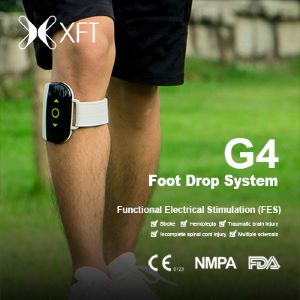Poster
Speech-Language Patholoigsts' Knowledge and Attitudes Regarding Cancer-Related Cognitive Impairment
Wednesday, November 1, 2023
2:45 PM - 2:51 PM
Location: Station 11

Patricia Geels, PhD, CCCSLP (she/her/hers)
Assistant Professor
Indiana University South Bend
South Bend, Indiana, United States
Presenting Author(s)
Research Objectives: To explore the experiences, knowledge, training, and attitudes of speech-language pathologists (SLPs) regarding the assessment and intervention of cancer-related cognitive impairment (CRCI).
To investigate the impact of years of experience on their professional knowledge and attitudes toward CRCI.
Design: Exploratory, cross-sectional survey.
Setting: A link to a Qualtrics survey was distributed via the American Speech-Language-Hearing Association Special Interest Groups for Neurogenic Communication Disorders (SIG 2) and Gerontology (SIG 15), social media, and local medical systems.
Participants: Eligible participants included SLPs who (a) hold or are pursuing ASHA’s Certificate of Clinical Competence and (b) hold a state license to practice speech-language pathology.
Interventions: N/A
Main Outcome Measures: This study utilized an exploratory, cross-sectional design.
Results: Three-quarters of the participants reported some experience with individuals with CRCI. The majority of participants believed that providing care for individuals with CRCI falls within the scope of SLP practice and is an ethical responsibility. Approximately 65% of participants had completed CRCI-specific training. The results indicated that years of experience had a significant impact on various aspects of professional knowledge and attitudes toward CRCI.
Conclusions: The findings of this study suggest that SLPs have a positive attitude toward assessing and treating CRCI, with a majority considering it a medical necessity. However, there is a need for further research to explore the role of SLPs in the assessment and treatment of CRCI.
Author(s) Disclosures: No known conflicts
To investigate the impact of years of experience on their professional knowledge and attitudes toward CRCI.
Design: Exploratory, cross-sectional survey.
Setting: A link to a Qualtrics survey was distributed via the American Speech-Language-Hearing Association Special Interest Groups for Neurogenic Communication Disorders (SIG 2) and Gerontology (SIG 15), social media, and local medical systems.
Participants: Eligible participants included SLPs who (a) hold or are pursuing ASHA’s Certificate of Clinical Competence and (b) hold a state license to practice speech-language pathology.
Interventions: N/A
Main Outcome Measures: This study utilized an exploratory, cross-sectional design.
Results: Three-quarters of the participants reported some experience with individuals with CRCI. The majority of participants believed that providing care for individuals with CRCI falls within the scope of SLP practice and is an ethical responsibility. Approximately 65% of participants had completed CRCI-specific training. The results indicated that years of experience had a significant impact on various aspects of professional knowledge and attitudes toward CRCI.
Conclusions: The findings of this study suggest that SLPs have a positive attitude toward assessing and treating CRCI, with a majority considering it a medical necessity. However, there is a need for further research to explore the role of SLPs in the assessment and treatment of CRCI.
Author(s) Disclosures: No known conflicts
Learning Objectives:
- Explain the symptom profile of an individual with CRCI.
- Describe SLPs' knowledge and attitudes regarding cognitive-communication services for cancer patients.
- Describe the impact of professional years of experience on SLPs' knowledge and attitudes regarding cognitive-communication services for individuals with cancer-related cognitive impairment.

.jpg)
